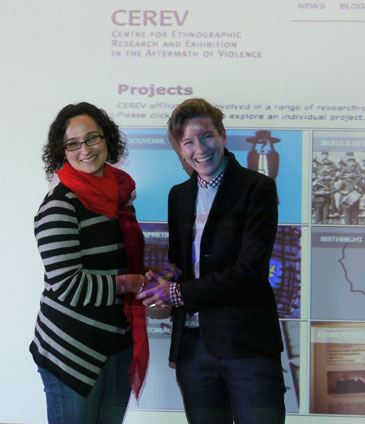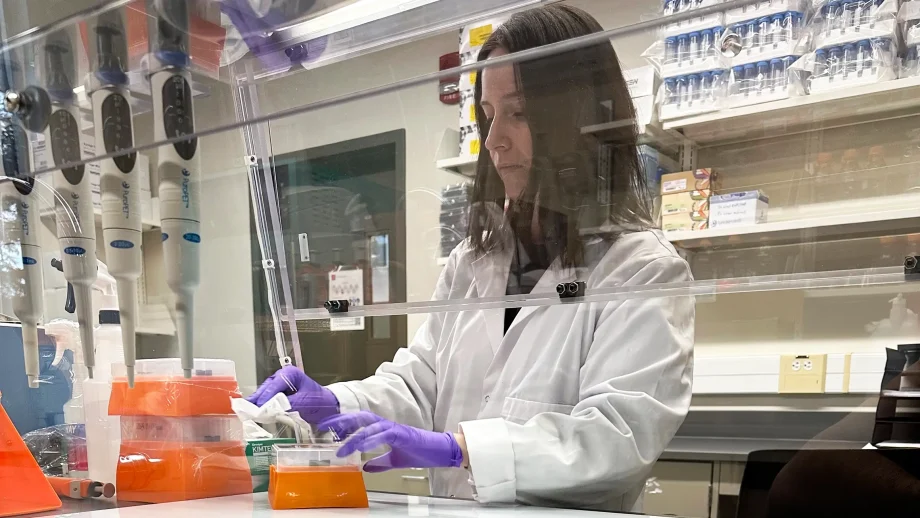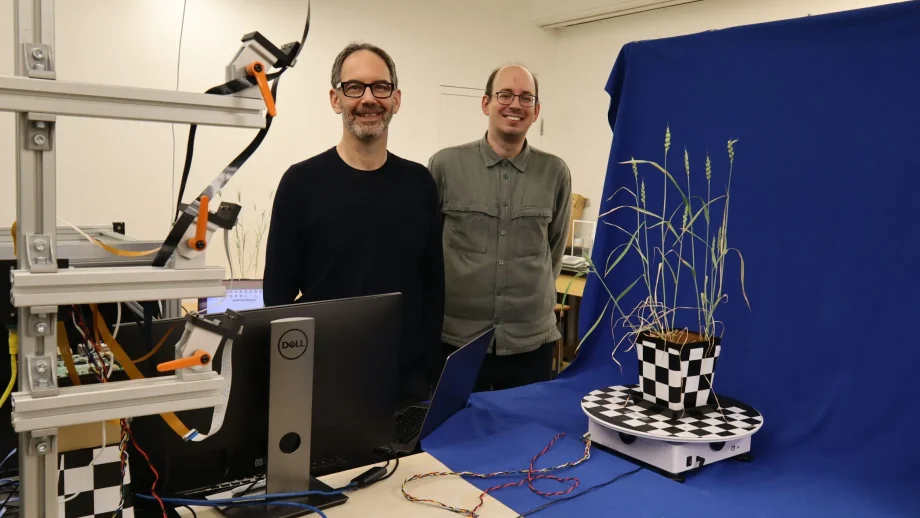WINNIPEG, MB – A Connections Grant awarded by the Social Sciences and Humanities Research Council of Canada (SSHRC) has been given to Dr. Angela Failler Chancellor’s Research Chair, Associate Professor and Department Chair of Women’s & Gender Studies; and Dr. Erica Lehrer, Canada Research Chair in Post-Conflict Memory, Ethnography and Museology, Director of the Centre for Ethnographic Research and Exhibition in the Aftermath of Violence at Concordia University (CEREV). This grant is for Caring for Difficult Knowledge: Human Rights in Contemporary Museum and Curatorial Practice, a joint program between The University of Winnipeg’s Cultural Studies Research Group (CSRG) and CEREV.
The funds will go primarily towards supporting a workshop titled Museum Openings: Caring for Difficult Knowledge: Within and Beyond the Canadian Museum for Human Rights, to be held at the University of Winnipeg in September 2014 to coincide with the grand opening of the Canadian Museum for Human Rights (CMHR). The workshop will be co-facilitated by CSRG and CEREV.
“Difficult knowledge refers to encounters with the past that are not easily assimilated into our present frameworks of understanding,” explains Failler. “Canada’s ongoing history of colonization and the genocidal practices carried out against First Nations and Metis people, for example, constitute difficult knowledge relative to common conceptions of Canada as a benevolent and peaceful nation.”
The workshop itself will provide an opportunity for researchers, museum staff, curators and students to reflect on the significance of the museum’s opening and, together, to imagine how the debates, controversies and energies surrounding the CMHR may inspire new museological and curatorial approaches, as well as open conversations in other contexts.
“Our proximity to the CMHR has provided opportunities to be in direct dialogue with curatorial, research and education staff from the CMHR, and to observe how local communities and debates are impacting the forthcoming museum,” expressed Failler.
“CEREV’s affiliates bring this new partnership a depth of expertise in critical museum studies and curatorial practices, including leading scholarship on curating difficult knowledge,” explained Lehrer. “The workshop is geared to address how thinking through the CMHR as a site of ‘difficult knowledge’ may help generate new concepts and terms of engagement for learning from histories of violence and suffering within and beyond the museum.”
The CSRG is a diverse team of interdisciplinary cultural studies scholars from across the Social Sciences and Humanities at UWinnipeg with an impressive track record on social justice and human rights related research. The CSRG has endeavored, through its preliminary case studies and direct dialogue with the museum, to contribute to the potential for the CMHR to serve as a meaningful site of cultural production, pedagogical encounter, and public exchange.





